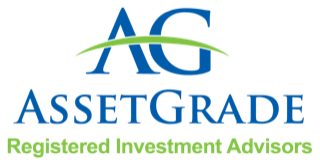
Managing Debt
BY: KATE HENNESSY, CFP®
Just like your favorite ice cream, debt comes in a variety of flavors – student loans, credit cards, and mortgages are just a few that come to mind. The majority of people have a variety of debt with varying interest rates. An interest rate is the amount a lender charges a borrower and is typically a percentage of the amount loaned. In the next few paragraphs we’ll cover some statistics and tips on how to manage debt.
- First, debt as a concept has a psychological and a practical side. Simply put, debt represents an IOU and digging out of debt can be painful – but the payoff is so rewarding as it helps people gain more financial independence. The first step to paying off any debt is to understand your finances and current debts. Make a plan because all that money spent on paying interest could be money invested or saved for your future.
- Second, there are many ways to put a plan in place to manage debt. If you have multiple flavors of debt, target one balance at a time.
- Perhaps it’s the debt with the highest interest rate, thereby saving you the most on interest costs. Debt with an interest rate over 5% is considered high.
- However, it may be more mentally rewarding to attack the smallest balance first to feel a quick sense of accomplishment. It’s important to stay motivated.
- Once you have a balance paid off, redirect that money to paying the next balance off.
There are instances, however, it is not advantageous to pay off debt early. Examples include subsidized student loans that have interest rates at 2% or lower, or home loans that have reasonably low interest rates.
- Lastly, educate yourself and know you are not alone. The average person carries over $6,000 in credit card debt from month to month. The good news is that this amount continues to decrease quarter over quarter as people are spending less and saving more. Take stock of your debt and educate yourself on the various interest rates that lenders are charging you.
Although debt can be emotionally exhausting, if you follow the three steps outlined above, you can be on your way to being financially independent. Contact us to discuss how we can help with a financial plan and managing your debt.

